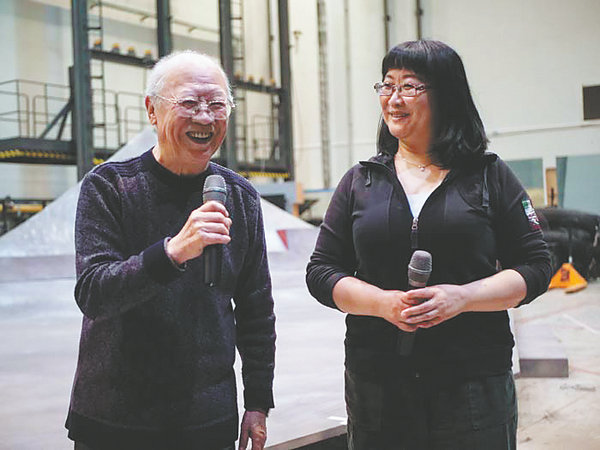

The cultural ambassador
Influenced by the two generations before her, Luo Tong went to study in Greece before even finishing her undergraduate degree. Unlike her elders, she decided to introduce Chinese culture to Greece.
"My grandfather's generation did a lot to bring Greece to China, but Chinese culture still lacks promotion in Greece, especially at the grassroots level. I felt it was my turn to take China to Greece," she says.
After graduating, Luo Tong began teaching at the University of Athens. In 1992, with her encouragement, the university's language school started offering Chinese language courses.
In 2001, Luo Tong founded the InterChina Cultural Center, initially focusing on teaching Chinese. Gradually, it expanded to include kung fu, calligraphy, painting and cultural performances, becoming the first — and now highly respected — Chinese cultural center in Greece.
"People used to say they studied Chinese out of curiosity for its ancient civilization. Now, besides curiosity and admiration, they see China as an emerging market with huge potential and as the future of the world. The closer the relationship with China, the better," she says.
Nikos Kazantzakis, a prominent figure in modern Greek literature, who has visited China twice, famously said, "Confucius and Socrates were two masks on the same face of human logic".
The Luo family's experiences have repeatedly proven this profound connection.
In 1988, Luo Niansheng urgently needed medical treatment in Greece for a severe intestinal issue, but faced a dire situation because his rare blood type wasn't available. Word spread, and over 200 Greeks came forward to donate blood, successfully finding a match.
Years later, when Luo Tong was studying in Greece, she learned that a Greek professor needed a blood donation. Remembering the kindness her grandfather received, she immediately went to donate.
In 2018, Luo Tong returned to China, after overseeing the widespread growth of Chinese language teaching in Greece. Back home, she also ventured into the theater industry, introducing foreign plays, assisting her father with his lectures and negotiating collaborations with theaters.
She and her father worked together on the ancient Greek comedy, The Birds by Aristophanes, bringing it to life on the stage of the National Centre for the Performing Arts.
They adapted the play to make it more accessible to Chinese audiences, using familiar Chinese names for the characters and incorporating Chinese paper-cut art, resulting in a surprisingly successful performance.
Luo Tong sees her father and grandfather as grounded individuals who, regardless of the world around them, have tirelessly worked toward their goals. "Their quiet dedication is a rare quality in our generation, which tends to be more impulsive and easily distracted. Their steadfastness is a silent but invaluable lesson to me," she says.
Reflecting on her journey thus far, she says, "I once said that my grandfather had done everything there was to do in bringing Greece to China. I was wrong. Times change, and so do the needs and levels of exchange. Cultural exchange is an ongoing process; it's never truly complete."